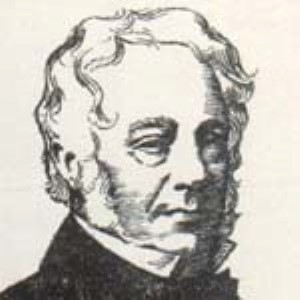Pedro Félix Vicuña facts for kids
Pedro Félix Vicuña Aguirre (born February 21, 1805, in Santiago, Chile – died May 24, 1874, in Santiago) was an important Chilean journalist and politician. He helped start the newspaper El Mercurio de Valparaíso in 1827. This newspaper is the oldest Spanish-language newspaper still being published today. Pedro Félix Vicuña was also a writer and a strong supporter of liberal ideas.
Contents
A Young Journalist's Start
Pedro Félix Vicuña was born in Santiago. His father, Francisco Ramón Vicuña, was a well-known leader of the Liberal party and even served as acting president of Chile for a short time in 1829. Pedro received a great education, studying subjects like history, literature, and business. From a young age, he loved writing, especially for newspapers.
When he was 20, in 1825, he moved from Santiago to Valparaíso. There, he bought a printing press and started his own newspaper called El Telégrafo Mercantil y Político. The first issue came out on October 3, 1826.
In 1826, he married Carmen Mackenna. They had thirteen children together. One of their sons, Benjamín Vicuña Mackenna, also became a famous journalist and historian later on.
Founding a Famous Newspaper
In 1827, when Pedro was only 21, he started El Mercurio de Valparaíso. He worked with two typographers, Thomas Wells and Ignacio Silva. The very first issue of this famous newspaper was published on September 12, 1827. At first, it came out only twice a week, but by 1829, it was published every day.
Later in 1829, Pedro sold his part of the newspaper and moved back to Santiago. In the capital city, he worked as an editor for other newspapers like La Ley y la Justicia. He also wrote for El Censor and a magazine called Paz Perpetua a los Chilenos. Because of his ideas in Paz perpetua, he became an opponent of Diego Portales, a powerful Conservative minister. Pedro Félix Vicuña was known for his liberal and revolutionary views.
A Life in Politics
Pedro Félix Vicuña was also very involved in politics. In 1831, he was chosen to represent La Serena in the Chamber of Deputies. However, his election was canceled by the Chamber, which was mostly controlled by Conservatives. Feeling disappointed, he decided to live a quieter life in the countryside for a while.
In 1840, he supported Francisco Antonio Pinto, another Liberal leader, and spoke out against Manuel Bulnes. He continued to publish newspapers that supported liberal ideas, such as El Observador (in 1842) and El Republicano (in 1845). These papers supported the candidacy of general Ramón Freire.
Because of his political writings, he was sent away from Chile for a time and went to Peru. While in Peru, he wrote a book called Ocho meses de destierro o cartas sobre el Perú (which means "Eight Months of Exile, or Letters About Peru"). This book was published in 1847 after he returned to Chile.
Pedro Félix Vicuña helped the revolutionaries in 1851. During an armed rebellion, he was named intendente (a type of governor) of Concepción. He even fought against government troops in the Battle of Loncomilla on December 8, 1851. Even though his side lost, he refused to sign the Treaty of Purapel, which officially ended the civil war.
In 1852, he wrote El porvenir del hombre (meaning "The Future of Man"), which many consider his most important work. He also wrote another book about his own life called Memorias Íntimas in 1853.
He was elected to the Chamber of Deputies again, representing La Serena in 1864 and Ovalle in 1867. During his time in Congress, he supported important changes. These included reforming the constitution, creating a national bank, and setting up a special court for mining issues. In 1867, he introduced a bill to end imprisonment for debt, which meant people would no longer be put in jail just because they owed money. This bill was passed into law.
In 1870, he was elected as a senator, serving two terms. Pedro Félix Vicuña Aguirre passed away in Santiago in 1874.
More to Explore
See also
- Vicuña family
Sources
- Pedro Félix Vicuña, Retrieved 15 October 2008
 | Dorothy Vaughan |
 | Charles Henry Turner |
 | Hildrus Poindexter |
 | Henry Cecil McBay |


